November 10, 2022: No Seminar This Week
There is no IRES Seminar on November 10 due to the Midterm Break (Nov 9 to 11, 2022).

September 28, 2023: IRES Professional Development Seminar with Danielle Barkley
Approaches to Career Planning & Job Searching for IRES students
Location: AERL Room 107
*** This seminar is for IRES students only ***
(No food or drinks allowed in lecture halls.)
Time: 12:30pm to 1:20pm
View Video Here
Talk summary:
This session will introduce graduate students to the resources and supports available at the University of British Columbia. We’ll also cover actionable steps you can take during your graduate studies to prepare for your job search, and how to get started: when to start applying for jobs, norms around the job search, and tips and strategies. There will be time for Q&A.
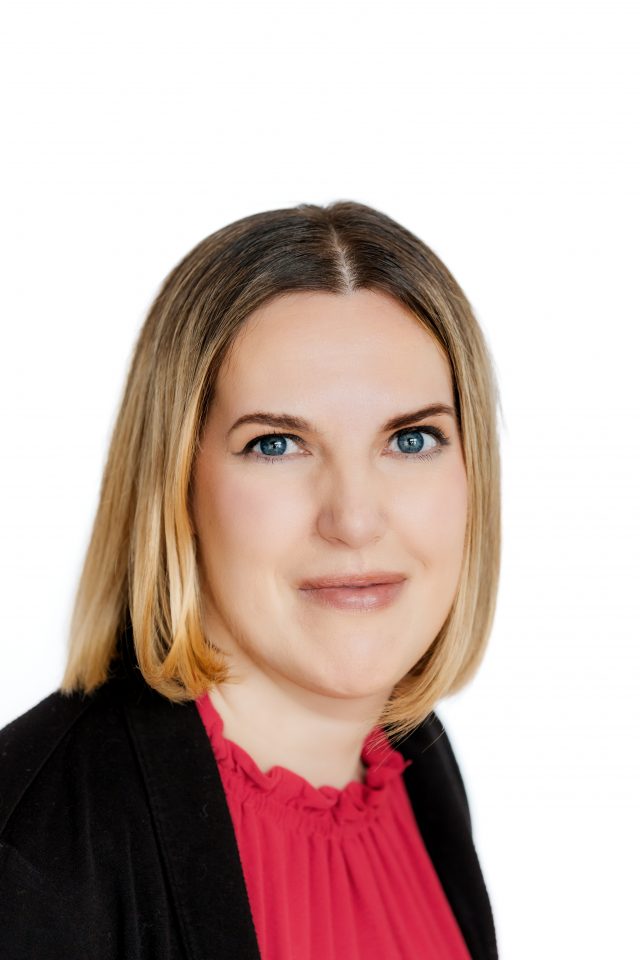
Bio:
Danielle Barkley, PhD, is a Career Educator who works with the UBC Career Centre to support graduate students at UBC. She completed her PhD at McGill University and has previous experience as a university instructor and writing consultant. Danielle is an accredited coach with the International Coaching Federation, and is currently working towards a certificate in Equity, Diversity, and Inclusion with UBC Extended Learning.
December 1, 2022: IRES Faculty Seminar with Sara Knox (Last Seminar in Term 1)
Wetlands in a changing world: processes, feedbacks and the climate benefits of wetlands
Time: 12:30pm to 1:20pm
Note: This seminar will be Zoom only.
View video here.
Talk summary:
Among the numerous ecosystem services provided by wetlands climate regulation is identified as one of their most important benefits to society. Wetland ecosystems play an important role in the global carbon cycle; they provide the ideal environment for long-term storage of atmospheric CO2, yet they are also the largest single source of methane. Climate change could increase greenhouse gas (GHG) emissions from wetlands, however, the consequences of rising temperatures on wetland GHG exchange remains uncertain. Furthermore, preventing further wetland loss and restoring wetland ecosystems has been identified as important in limiting future emissions to help meet climate goals. This talk presents research that combines field-based measurements, remote sensing, and modelling to provide new insights into the controls of wetland GHG fluxes across a range of spatial and temporal scales and quantify the potential climate benefits of wetland restoration and conservation.
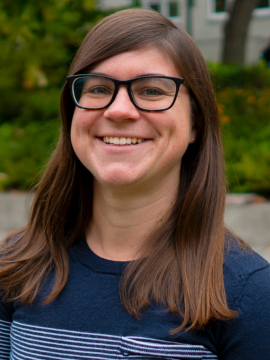
Bio:
Dr. Sara Knox is an assistant professor in the Department of Geography at the University of British Columbia. She received a B.Sc. in Earth System Science from McGill University, a M.Sc. in Geography from Carleton University, and a Ph.D. in Environmental Science, Policy and Management from the University of California, Berkeley. Dr. Knox leads the integrated GHG Research and Observations in Wetlands (iGROW) research program, which takes an interdisciplinary approach to provide a better understanding of how wetland responses to climate variability and restoration can feedback to slow or accelerate future climate change.
November 24, 2022: IRES Student Seminar with Susanna Klassen and Taya Triffo
1. Just in principle? Assessing the contributions of organic to fairness in Canadian agriculture
2. Green Infrastructure Planning in Vancouver: Addressing Environmental Justice and Hearing Resident Perspectives
Time: 12:30pm to 1:20pm
Location: Michael Smith Labs Theatre (Room 102, 2185 East Mall)
Click here to view video.
Talk summaries:
Agriculture is at the centre of society’s most pressing challenges, including food insecurity, climate change, and labour inequity. Organic agriculture, when practiced according to an ethic grounded in ecology, health, fairness, and care, has been proposed as a remedy to these challenges. However, there remain significant gaps in knowledge about how organic agriculture is practiced relative to the principles on which it was founded, especially the principle of fairness. Drawing from interviews, census data, surveys, and organic policy documents, I investigate how organic agriculture is shaped and enacted by organic community members at multiple scales to assess its contributions to fairness with a focus on labour. I found little evidence that organic certification translates to improved conditions for farmworkers in practice. At the same time, governance and social movement efforts show potential to advance a more just and sustainable agriculture.
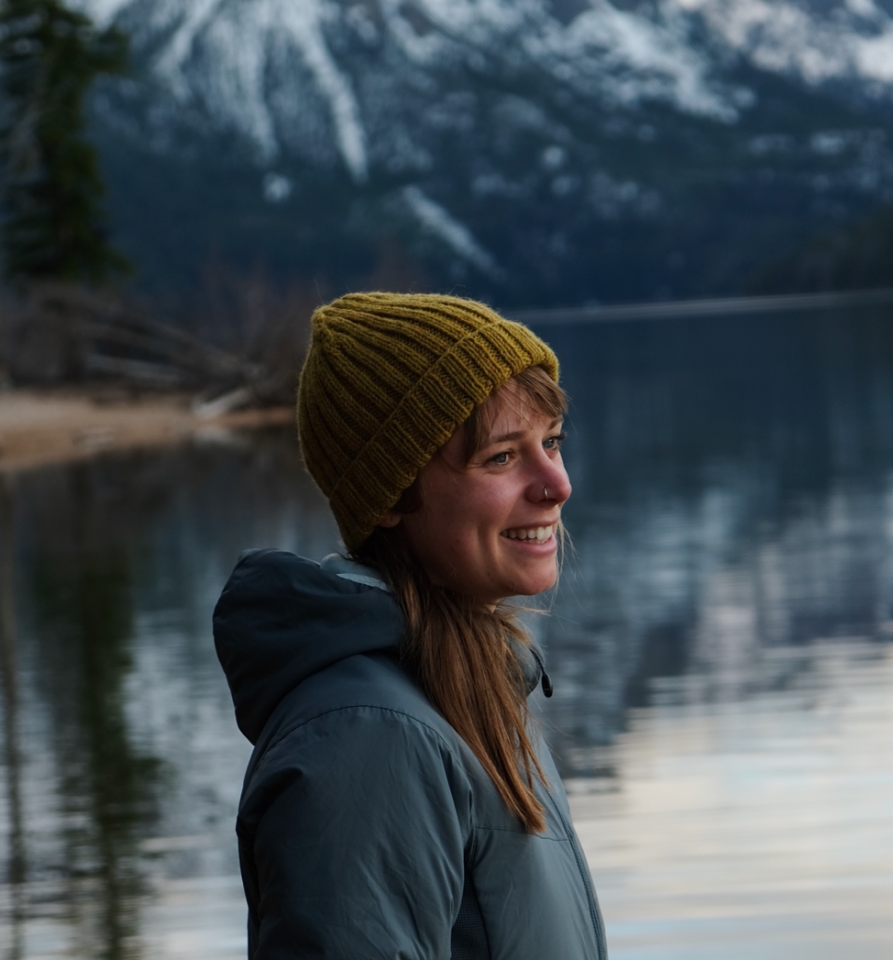
Bios:
Susanna is a PhD candidate at IRES and is co-supervised by Hannah Wittman and Navin Ramankutty. She is an interdisciplinary social scientist, and her doctoral dissertation looks at the contributions of organic agriculture to socio-ecological sustainability and fairness, with a focus on food policy, agroecological diversification, labour and justice. Susanna holds a BSc from McGill University and a MSc from UBC’s Faculty of Land and Food Systems. She lives on the traditional territory of the Tla’amin Nation on the lower Sunshine Coast of BC.
In city planning documents, the City of Vancouver’s eastern neighbourhoods are often mapped as “equity zones” and as “areas in need of resources.” With higher climate hazard risk (e.g., sea level rise) and higher socioeconomic vulnerability (e.g., low-income), these equity zones have become high-priority areas for improvements, such as green infrastructure (GI) solutions like street trees and rain gardens. In this research, I turn to Vancouver’s equity zones and ask: what are residents’ self-identified GI priorities, challenges, and aspirations? Two participatory workshops were hosted with residents who live in equity zones. Participants shared how GI projects can be adapted to meet their needs as renters, immigrants, low-income individuals, and families. Second, participants stressed that improved liveability (namely through public transit and affordable housing) can improve their experience with GI.
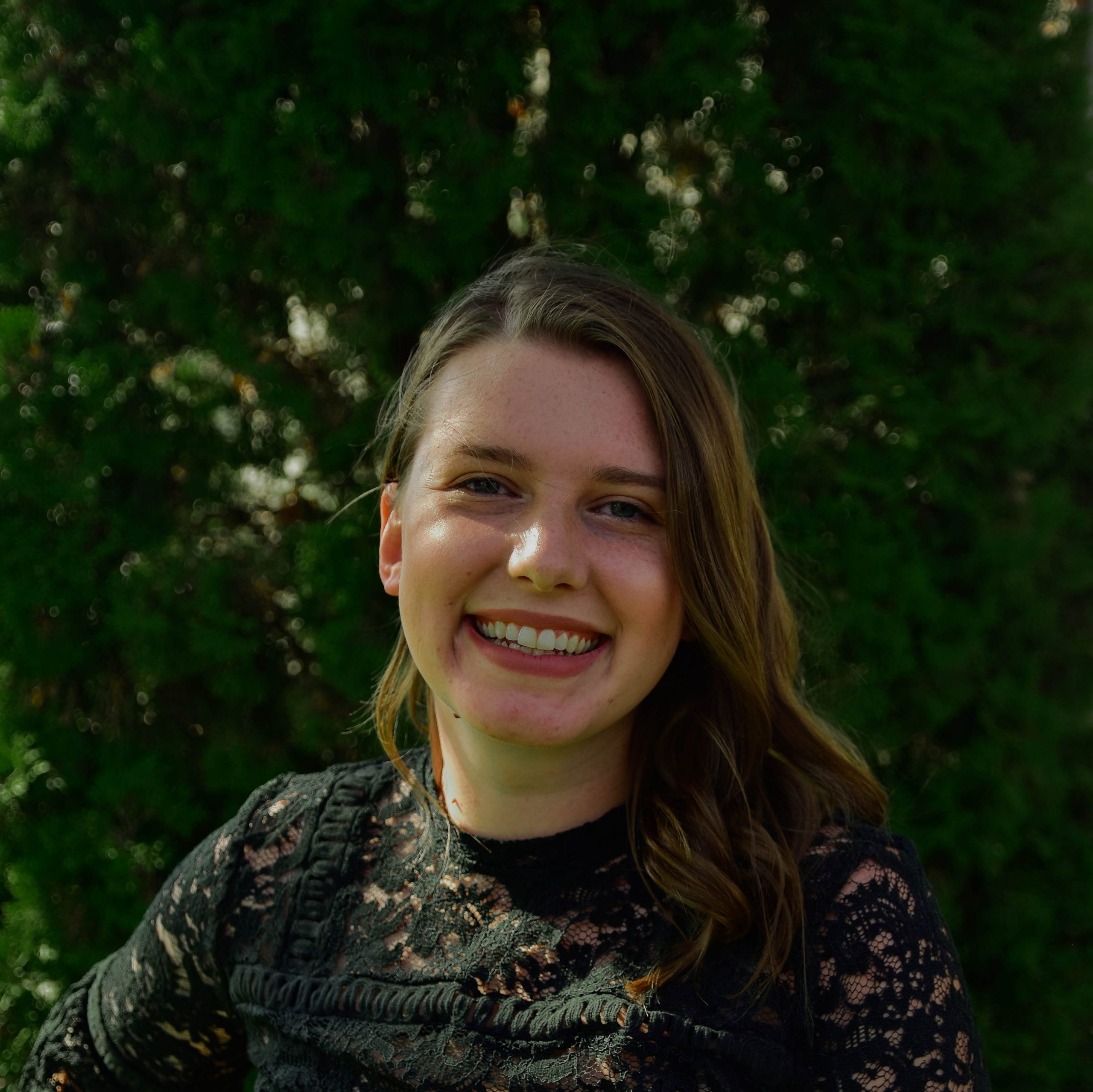
Taya Triffo is a Master of Arts student with IRES (supervised by Dr. Leila Harris). She earned a Bachelor of Arts in Philosophy, Politics, and Economics at the University of Regina, convocating with great distinction and the President’s Medal. Taya is interested in how communities work together to articulate and envision resource transformations. She has participated in advocacy for the 100% Renewable Regina project — both as a community facilitator and as a policy researcher. She has also worked with the Regina Qu’Appelle Health Region, University of Regina’s Community Engagement and Research Centre, and the Saskatchewan Ministry of Agriculture.
November 17, 2022: IRES Faculty Seminar with Sara Ghebremusse
Corporate Control Over Human Rights: Barrick Gold’s North Mara Grievance Mechanism
Time: 12:30pm to 1:20pm
Location: Beaty Museum Theatre (2212 Main Mall)
View video here.
Talk summary:
Implementing an operational-level grievance mechanism is considered an effective remedy to address human rights violations that a business may commit. In accordance with the United Nations Guiding Principles on Business and Human Rights, these mechanisms can support the identification and remediation of adverse human rights violations. Barrick Gold Corporation, first through its affiliate Acacia Mining and then on its own, has managed an operational-level grievance mechanism to address the violence and other human rights violations alleged by local communities near its North Mara mine in Tanzania. Since its implementation, the mechanism has been criticized for falling short of international standards and failing to redress community grievances. This presentation will discuss the history and shortcomings of Barrick Gold’s grievance mechanism, with a particular focus on how corporate control over human rights violations at the mine has transformed elements of Tanzania’s approach to mining governance.
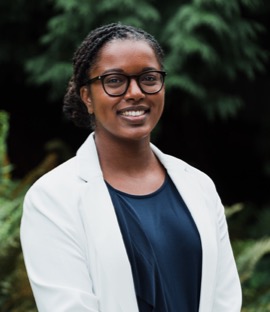
Bio:
Dr. Sara Ghebremusse is an Assistant Professor at the Peter A. Allard School of Law. She writes, researches, and teaches in the areas of African mining, law and development, transnational law, and human rights. She has published in all these fields and has presented her research at conferences around the world. Dr. Ghebremusse is the Principal Investigator of a SSHRC Insight Development Grant-funded project examining how Canadian mining conflicts in Tanzania and Zambia have contributed to institutional transformation in the two countries. She has also supported the development of the Allard School of Law’s Executive Learning Program in Mining Law and Sustainability.
October 27, 2022: IRES Faculty Seminar with Shashidharan Enarth
Talk summary:
In Sept 2020, the Government of India hustled three Bills through the Parliament, in what many observers describe as a subversion of basic democratic and parliamentary procedures. These three laws were touted as a paradigm changer for the agriculture sector in the country. On the face of it, the laws appeared to steer the agriculture value chain toward a free market, implicitly acknowledging that the sector is heavily subsidized. opponents argued that the laws weakened the price guarantees that staple food crops enjoyed, removed existing regulations to prevent hoarding and price rigging and pitted powerful corporations against unorganized farmers. A majority of the critics agree that the new laws were designed to fast-track investment from large corporations. What they disagree on is whether the entry of corporations will come at the cost of farmers.
This discussion will look at the controversy from an additional angle — from a viewpoint that policy debates on agriculture and allied sectors in India (and much of the Global South) are about much more than productivity and food security. It is also about poverty reduction goals, equity, property rights and disempowerment. We will discuss how a vast majority of farmers are under-represented in the policy-making process. And how they will remain excluded despite all the hype and attention that the recent agitation garnered.
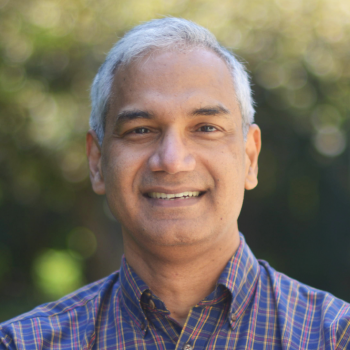
Bio:
Shashi Enarth is a development activist from India, struggling to strike a balance between academia and praxis. Starting his career as a community organizer, he has worked with low income segments of the population, particularly with farming communities in India, Nigeria and Tanzania. His area of interest is: building community-based self-governing people’s institutions that can safeguard the interests of its members through sustainable and equitable use of all forms of capital, especially natural and human resources. A good part of his 25 year development career saw him struggle with implementation of development policies that mandated decentralization of fiscal, administrative and political powers against a backdrop of a political economy that is shaped by traditional institutions and forces of centralization. In the process, he got involved in policy research and advocacy initiatives through NGOs in India and as a consultant to The World Bank in Africa. His current research interests, therefore, focusses on understanding barriers to equity and sustainability in the geo-political context of developing economies. Before taking the current sabbatical, he was a senior member of BASIX Social Enterprise Group, an Indian conglomeration of 15 organizations working on a mission to promote large scale sustainable livelihoods.
Shashi is a trained social worker who returned to school to do a PhD that explored the relationship between the processes of decentralization and democratization and its impact on good governance. He is an IRES/UBC Alumni, during the days of RMES!
October 20, 2022: IRES Professional Development Seminar with Chelsey Armstrong
An Archaeological Perspective and Anti-colonial Approach to Forest History in Laxyuubm Ts’msyen and Beyond
Time: 12:30pm to 1:20pm
Location: Beaty Museum Theatre (2212 Main Mall)
Email communications@ires.ubc.ca for video.
Talk summary:
Land-use scientists increasingly recognize that ecological and anthropogenic forces have long interacted in complex ways, forming many of the landscapes we observe today. In the Pacific Northwest, historical Indigenous land-use and forest management has resulted in forest gardens: ecosystems dominated by edible fruit, nut, and berry producing trees and shrubs, managed by Indigenous peoples in the past and which continue to grow today. This presentation will provide an overview of forest garden research in collaboration with Ts’msyen, Sts’ailes, and Nuchatlaht Nations, focusing on archaeological and historical-ecological methods and data. Anti-colonial perspectives are explored as a means of centralizing Indigenous sovereignty and practice (action) while challenging ongoing colonial/extractive dynamics in scientific research.
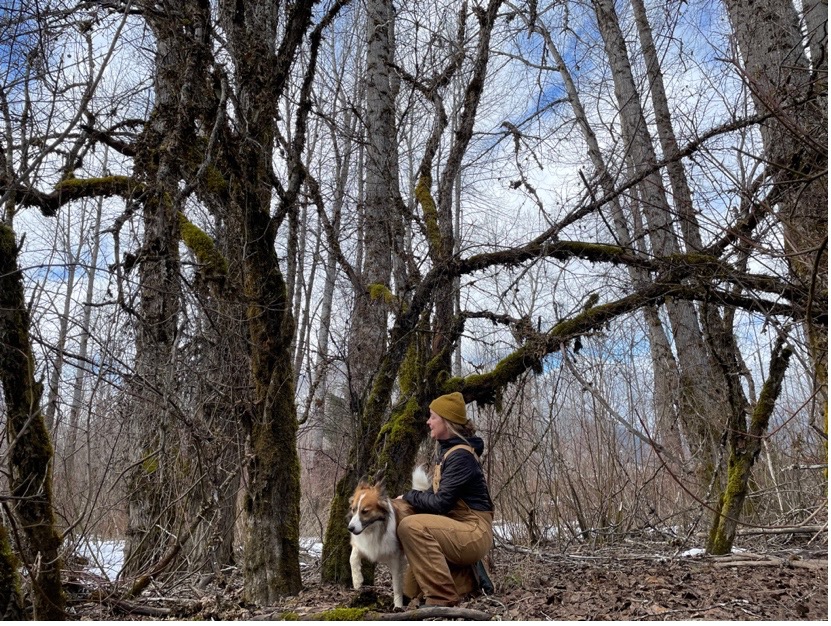
Settler scholar and assistant professor in Indigenous Studies at Simon Fraser University
Director of the Historical and Ecological Research Lab
Bio:
Dr. Armstrong is a historical ecologist and archaeologist specializing in ancient human land-use in the Pacific Northwest. She is a settler scholar and assistant professor in Indigenous Studies at Simon Fraser University, and director of the Historical and Ecological Research Lab.